Enzo Kreft recorded two minimal wave cassettes in the early 80s, whose fame have been increasing with time and that were later reedited in 2016. Since then, he has produced three more records, highly recommended for all electronic music lovers. He will be playing at the W-Fest, on the 22nd of May, Olivier Daout Stage. There is no way we are going to miss it.
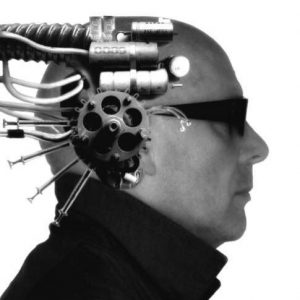 —How did you choose your name (I’m sorry if I ask this question that you have answered a few times)? Were you ever afraid of being mistaken for an Italian singer-songwriter?
—How did you choose your name (I’m sorry if I ask this question that you have answered a few times)? Were you ever afraid of being mistaken for an Italian singer-songwriter?
—Coming up with a pseudonym was a symbolic starting point for my musical project. I wanted it to be a name that spoke to the imagination. Right from the start I had the name Enzo in my mind, don’t ask me why… One of my former friends continuously used the dialect word “kreften”, which means nagging, and it always sounded very funny to me. Once after a night out, I suddenly knew it: Enzo Kreft! I liked it, it sounded good to me, a bit Italian-German krautrock-like. So I don’t have to be afraid of being mistaken for an Italian singer-songwriter 🙂
—About the cover of your first cassette, Me Is!, what can you tell us about it? It’s really iconic. 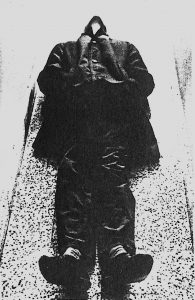 You were doing the artwork, right?
You were doing the artwork, right?
—Yes, I did, I do this myself for all the albums. In that period, the early 1980s, you couldn’t make selfies with the same ease with which you can do it now, so I asked a good friend of mine to come and take pictures, while I was directing the event. In that period I had bought a black coat in a second-hand store. I really wanted to wear it for the photo shoot. I had the idea of being photographed while lying on the floor like a deceased person. The photo was taken in the hallway of the apartment where I was living at the time. I still have that famous coat and I wear it during my shows!
—What gear was used for that record?
—I can assure you: it was quite primitive! I used a Yamaha CS01 (a small analog monosynth), a Sound Master SR-88 Rhythm machine, a Boss DM-100 Delay Machine, a cheap electric guitar, an old microphone, a Sound Master Mini Mixer and two cassette recorders. All played manually, no sequencers were used…
—In this album, you made a cover of the Human League, what other electronic bands from the beginnings of the eighties were you listening to? Maybe Fad Gadget?
—I listened to many bands and artists. To mention a few: Kraftwerk, David Bowie, Gary Numan, John Foxx, Dark Day, Jeff and Jane Hudson, Fad Gadget, Cabaret Voltaire…
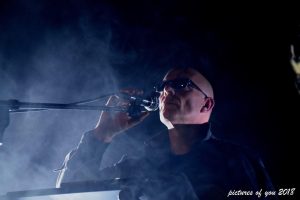 —Cicatrice (1984) seems a bit more professional and have a tune that could have been a hit, “Something’s Coming.” How was it received back in the day? Was it more difficult to be reviewed in fanzines or music magazines?
—Cicatrice (1984) seems a bit more professional and have a tune that could have been a hit, “Something’s Coming.” How was it received back in the day? Was it more difficult to be reviewed in fanzines or music magazines?
—At the time I didn’t even know if there were any fanzine or music magazines or not. I was just doing my stuff, it all happened on a small scale. My tapes were only known by few people, especially in the underground circuit and occasionally they were played by some DJ friends at dark parties. “Something’s Coming” was not really a well-known hit in that period. However, I didn’t care much about it, I was particularly pleased that I could make music in my small home studio.
—This music is based on the overdubbing system says your second cassette, but which was your system for the overdubbing?
—I recorded my tracks layer by layer. Each new layer was mixed together with the tape on which the previous layers were recorded, via a mixing table to a second tape. So it went on and on. Usually I ended with the recording of the vocals.
—Did you play live in the eighties?
—Yes, I did, but not with the Enzo Kreft project. I participated as a keyboard player in a few eighties local bands and I did play live with some of these guys.
—Why did you not release any more music in the eighties after these two records?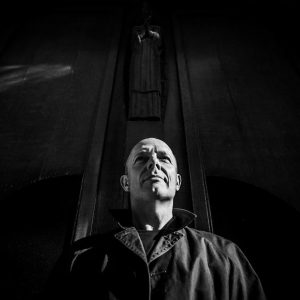
—To be honest, I didn’t feel the urge. I was just making fun with some bands and I also had a project with my cousin, we recorded a lot of tracks in my home studio, it sounded all quite experimental, but we never released our stuff… maybe later, you never know.
—In a few interviews you have said that some tracks were not elaborate enough, but don’t you think that is part of the charm of these tracks?
—Some of the old tracks could have been a bit more elaborate indeed, the imperfection was often due to a lack of technical possibilities. I understand, though, that this imperfection can be charming as well!
—Were you interested in the Belgian electronic music of the 80s? Did you like EBM or New Beat?
—I knew the EBM genre fairly well and I listened to a number of bands from the early period, such as Front 242, The Neon Judgement… New Beat has passed me by a bit. The obscure early New Beat could fascinate me, but when the genre became too commercial, I quit.
—How was your life after these years? You were still working in the music business, right?
—After the 1980s I was indeed still making music, but not with the Enzo Kreft project. It was mainly a period of experimenting, searching for new sounds. I was also fascinated by cinematographic aspects of music and I made a number of instrumental pieces. During those years I also expressed myself creatively through other channels: I drew a lot, painted, made prints, sculpted and made videos. Music, my first big passion, was never far away. I still hear music when I’m creating images and I see images when I’m making music.
—You created your own label ZAK in the 80s to release your music and Enzo Kreft Music in the 2010s. How has the self-edition changed in these years?
—I’ve always preferred a DIY approach. I want to stay independent and keep artistic control on my recordings and songs. That ZAK label wasn’t an official label, it was just a funny name I invented and to me it rather felt like a statement for the fact it was a self-released album. With the Enzo Kreft Music label in the 2010s, things really have changed a lot, the internet has made things much easier! As a DIY artist you have the possibility of distributing and selling on the Internet, you can inform people about new projects and events, this was unthinkable in the 1980s!
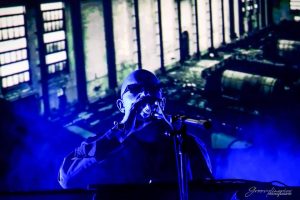 —You made a come back, partly thanks to the Dark Matter compilation. Who selected the tracks? Are we going to have a release with both full albums? (The cover of Human League from Me Is! is missing, I suppose that’s for copyright reasons.)
—You made a come back, partly thanks to the Dark Matter compilation. Who selected the tracks? Are we going to have a release with both full albums? (The cover of Human League from Me Is! is missing, I suppose that’s for copyright reasons.)
—I selected the tracks together with Lieven De Ridder, the owner of the famous Walhalla Records label, on which Dark Matter was released. I don’t know if there will be a re-release of the two cassette albums, I have been asked that question several times, I still have to think about that. “Being Boiled” has been skipped indeed for copyright reasons.
—Regarding the dark future you describe in your music, do you think it’s closer now than it was in the 80s?
—Definitely! We’re living in strange times… things have become even worse. I feel the need to express my dissatisfaction with the way leaders speak in the name of democracy but abuse their power and become extremely dangerous. I want to write songs about the way the masses are misguided, as if mankind didn’t learn anything from history. We have to deal with climate changes, with the fear of annihilation, with the prospect of a dystopian world in which mankind has become the slave of technology, etc.
—How did you get the idea of doing a new album in 2016 and how was working on it?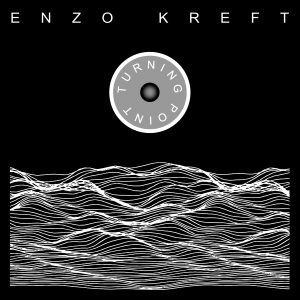
—In 2015 Walhalla Records owner Lieven De Ridder proposed re-releasing my 1980s music on the Dark Matter vinyl record. At that moment I got triggered to restart the Enzo Kreft project. It didn’t take that long before I started writing new songs. For that reason Turning Point was completed soon after the appearance of Dark Matter. Working on this new album was a quest and a challenge for me. On the one hand, I was musically and thematically looking for a connection with my 1980s albums, on the other hand, I wanted it to be a current album, relevant with the present time.
—Wasteland from 2017 with its environment awareness is a kind of concept album. How did you work in this case? Did you search a topic first and then compose the music accordingly, or first the music?
—From the beginning I had the idea to make a concept album about this theme. I don’t have a fixed system or a script to write my tracks. Usually things happen in a very intuitive way. Some tracks are preceded by a period of thinking things over, sometimes I have a concrete idea of a sudden. There are lyrics that serve as the basis for the music and there are pieces of music as a starting point for lyrics.
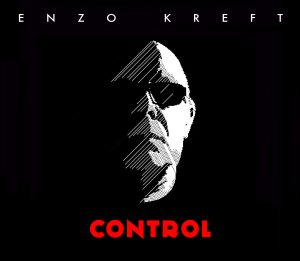 —Control, your last album from this 2019, is really interesting both in music and lyrics. In one of the songs, you speak about the Milgram Experiment, which was also referred to in a Peter Gabriel’s song. Do you like the tune by the ex-Genesis? How did you have the idea of writing about a thing like this?
—Control, your last album from this 2019, is really interesting both in music and lyrics. In one of the songs, you speak about the Milgram Experiment, which was also referred to in a Peter Gabriel’s song. Do you like the tune by the ex-Genesis? How did you have the idea of writing about a thing like this?
—I know this Peter Gabriel song, I like it a lot and I feel the connection with the topic. Control is an album about the way people are controlled and manipulated. I try to look into the future, I’m observing the present, but I’m going back to the past as well to understand the mechanisms. In my opinion, the Milgram Experiment fits in perfectly with this Control theme. Psychologist Stanley Milgram’s experiment dates from the early 1960s. Milgram wanted to investigate how it was possible the Nazis had ignored their moral convictions in order to kill millions of people. In the experiment, test subjects were encouraged to give electrical shocks to others and they just did it. It’s that kind of experiment you think: I would never do that myself! The experiment has been repeated over the years and it turns out: mankind has not even changed a little in 50 years, it still follows orders careless and doesn’t feel responsible for its actions…
—Nowadays, there are a lot of bands who find their inspirations in the 80s, which bands do you think are similar to what you were doing?
—I don’t think this is a simple question, because every band has its own identity and every story is written differently. The technical possibilities and the current context in which new bands are formed are different than in the early eighties. There are many new bands that I find interesting, but I don’t know if their story is similar to mine. For example, one of the interesting projects from Belgium is the one-man-band HerrNia.
—How different is your way of composing tracks now, if you compare it with the 80s? I mean with the new tools and possibilities of technology?
—Incredibly different! I work with a computer to record my songs, with this home studio I have infinitely more options than I used to. In the past it was impossible to modify tracks once they were recorded. Now I have lots of tracks available and I can refine, mix and produce my recordings down to the smallest details. I’m sure that if I had had the current technical possibilities in the 1980s, I would certainly have used them at that time!
—What can you tell us of your future concert at W-Fest?
—It seems a bit early to tell a lot about it. People who have already seen my live performances know that besides the music I also attach great importance to my visuals. For my concert at W-Fest I’m also working on it, I’m going to try to make it an intense and exciting show. I’m really looking forward to it!




